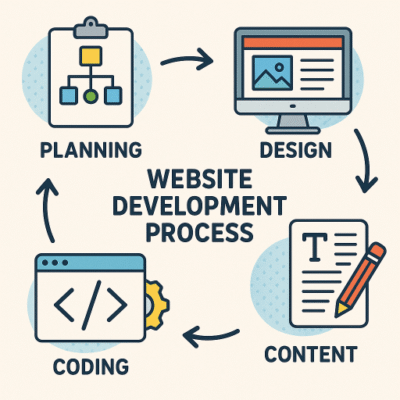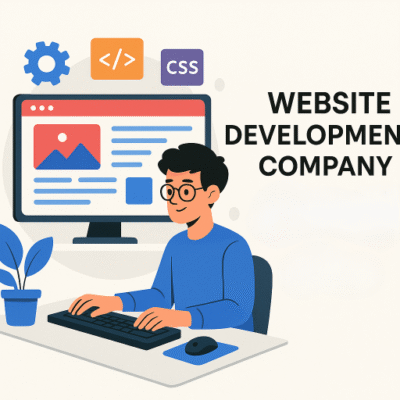In today’s digitally driven world, having a strong online presence is vital for the success of any business. One of the most powerful tools in achieving this visibility is search engines. From Google and Bing to Yahoo and DuckDuckGo, search engines play a central role in how users discover information, products, and services online. That’s why search engines are the backbone of digital marketing.
This article explores how search engines influence digital marketing, why they matter, and how businesses can leverage them to boost visibility, traffic, and conversions.
What Are Search Engines?
Search engines are online tools that help users find information on the internet. When someone types a query into Google, the search engine quickly scans billions of web pages and delivers the most relevant results based on its algorithm. These algorithms consider hundreds of ranking factors, such as keywords, page load speed, mobile-friendliness, backlinks, content relevance, and more.
The goal of every digital marketer is to appear in these search results—ideally on the first page. Why? Because more than 90% of people never scroll past the first page of search results.
Why Search Engines Are So Important in Digital Marketing
1. Massive Reach and Visibility
Search engines like Google handle over 8.5 billion searches every single day. This presents a huge opportunity for businesses to connect with potential customers. Whether someone is searching for “best running shoes,” “plumber near me,” or “how to invest in crypto,” appearing in search results means your brand gets seen.
Unlike social media, where content is pushed to users based on algorithms and preferences, search engines connect people with what they actively seek. This means higher intent and greater chances of conversion.
2. Targeted Traffic with High Conversion Potential
Traffic that comes from search engines is highly targeted. For example, someone searching for “buy wireless headphones online” is likely ready to make a purchase. By ranking high in search results for such queries, businesses can attract leads that are more likely to convert.
This is why SEO (Search Engine Optimization) is such a critical part of digital marketing—it helps your site appear for the right searches at the right time.
3. Cost-Effective Marketing
Compared to paid advertising methods like PPC (Pay-Per-Click), SEO and organic search marketing offer long-term value. While SEO takes time and effort to build, once you rank well, you can enjoy a steady stream of free traffic without constantly spending money.
Search engines reward high-quality content, proper keyword usage, and a solid user experience. By focusing on these areas, businesses can get high ROI from their digital marketing efforts.
4. Data and User Intent Insights
Search engines also provide valuable insights into what your customers want. With tools like Google Search Console, Google Analytics, and keyword research tools like SEMrush or Ahrefs, marketers can analyze search data to understand:
- Which keywords people are using
- What questions they are asking
- How much traffic each keyword generates
- What content performs best
This data helps in creating smarter marketing strategies based on actual user behavior and intent.
The Role of SEO in Digital Marketing
Search Engine Optimization (SEO) is the process of optimizing your website to improve its visibility in organic (non-paid) search engine results. SEO includes:
- Keyword research
- On-page optimization (titles, meta descriptions, headings, image alt text)
- Technical SEO (site speed, mobile responsiveness, crawlability)
- Off-page SEO (backlinks, social signals)
- Content creation
SEO ensures that your website is easily discoverable and relevant to your target audience. Without SEO, even the most beautiful and functional websites may remain invisible in search engines.
Search Engine Marketing (SEM) – The Paid Side
While SEO focuses on organic search, Search Engine Marketing (SEM) includes paid strategies like Google Ads. This allows businesses to pay for placement in the sponsored section of search results.
Paid search gives quick visibility and works well for time-sensitive promotions or highly competitive keywords. However, it can be costly if not managed properly. A combination of SEO and SEM can deliver both long-term and short-term gains.
Mobile Search and Local SEO
With mobile usage surpassing desktop, mobile search has become dominant. Search engines now prioritize mobile-friendly websites and local results. That’s where Local SEO comes in—helping businesses appear in location-based searches like “coffee shop near me” or “best dentist in Lahore.”
Google My Business profiles, reviews, location-specific keywords, and NAP (Name, Address, Phone) consistency are critical for local SEO success.
Voice Search and Search Engine Evolution
Voice search is another emerging trend in search engine usage. With the rise of smart assistants like Siri, Alexa, and Google Assistant, more users are using voice commands to find answers. Voice search queries are often longer and more conversational.
This shift is encouraging marketers to focus on long-tail keywords and natural language content that answers users’ questions directly.
How to Make Google Your Default Search Engine
If you want faster access to your preferred search tool, it helps to make Google your default search engine on all devices. Whether you’re using Chrome, Firefox, Safari, or Microsoft Edge, the process is simple:
- Open your browser settings.
- Look for the “Search Engine” section.
- Choose Google from the list or manually enter https://www.google.com.
- Save your preferences.
By doing this, every time you type a query into your address bar, it will automatically search using Google—saving time and offering the most relevant results.
The Future of Search Engines in Digital Marketing
Search engines are evolving with AI, machine learning, and real-time personalization. Google’s algorithm updates like BERT and Helpful Content Update are improving how search engines understand context, intent, and relevance.
Marketers must stay updated with these changes to maintain visibility and effectiveness in their strategies. Content that genuinely helps users, answers real questions, and provides value will always perform well in search.
Conclusion: Why Search Engines Will Always Be Central
Search engines connect people with the information they want, when they want it. They drive billions of interactions daily between users and businesses. For any brand looking to grow online, search engines are not just a tool—they are the backbone of digital marketing.
Whether through SEO, SEM, content marketing, or local SEO, optimizing for search is essential. And when it comes to implementing these strategies effectively, Zemalt Digital Marketing offers expert solutions that help you rank, convert, and grow your business in a competitive digital landscape.



